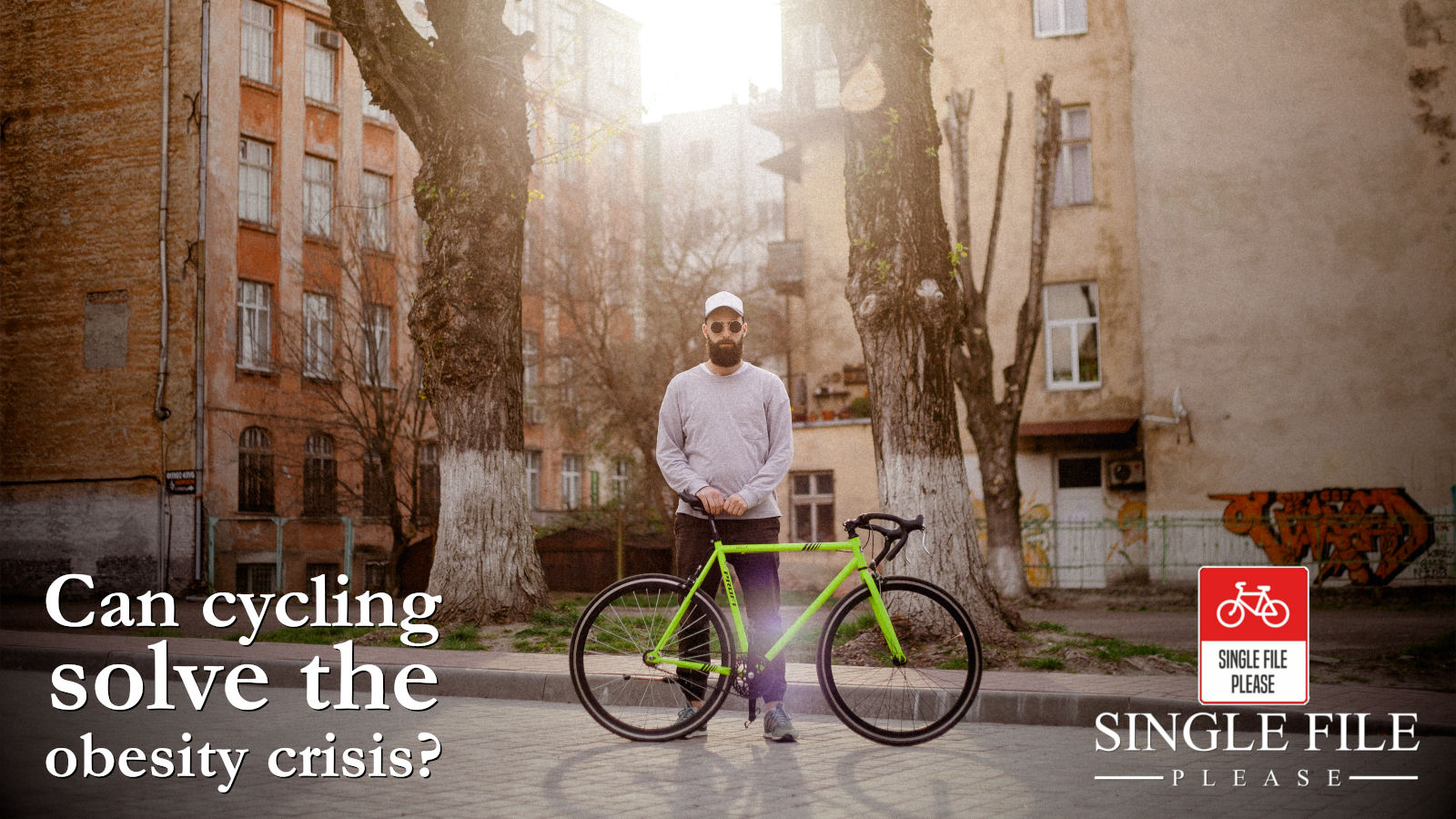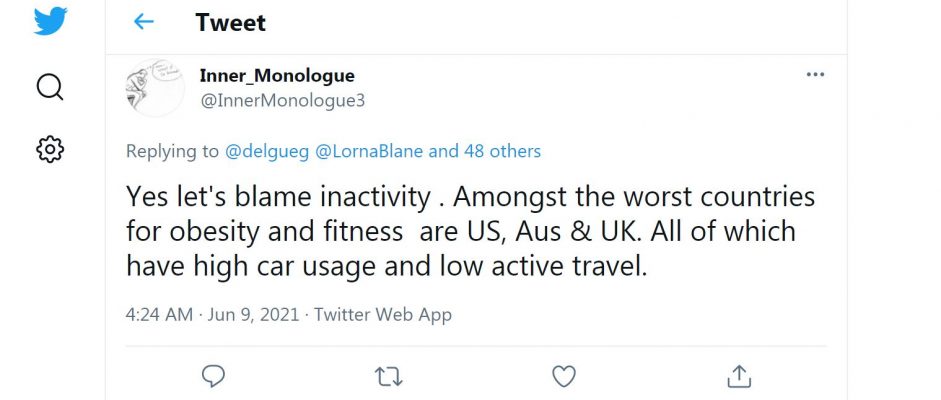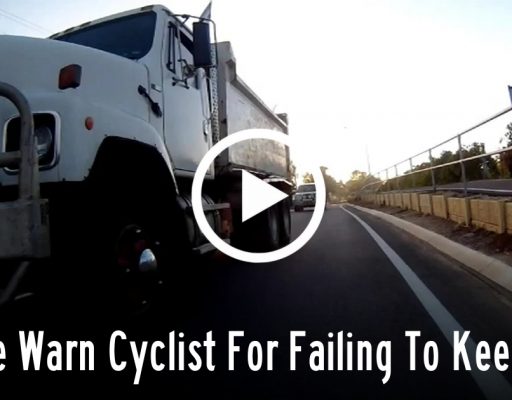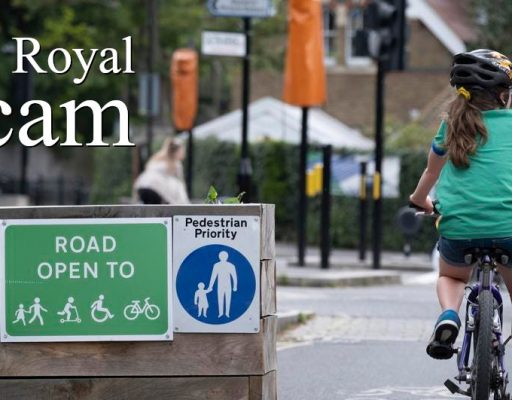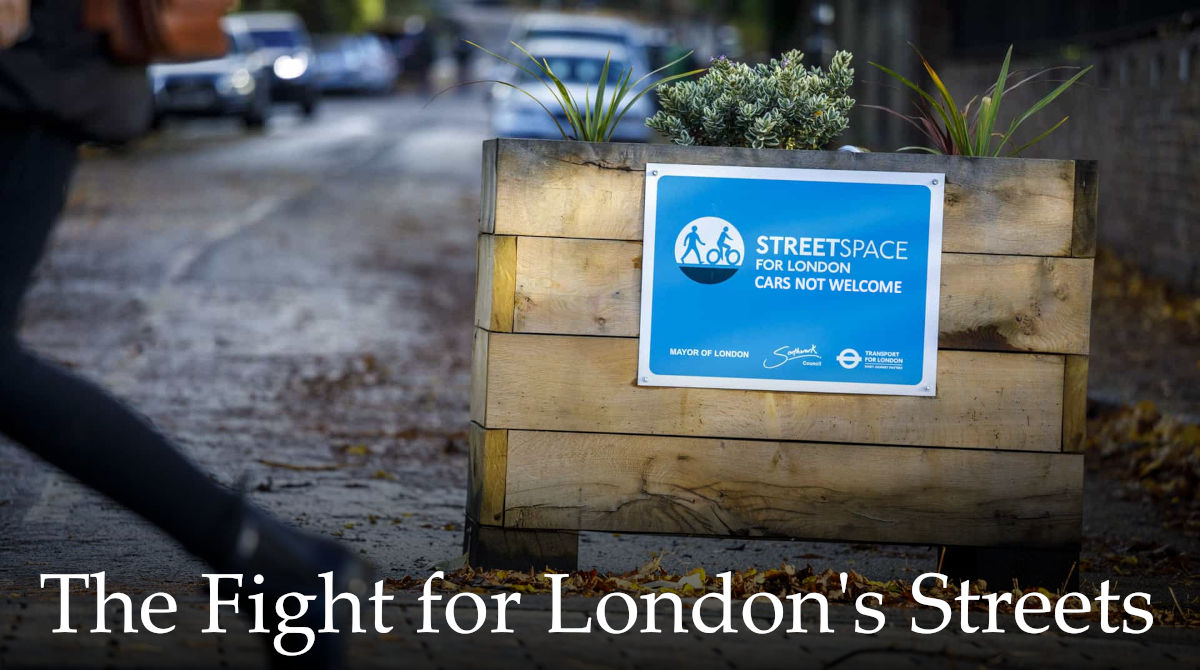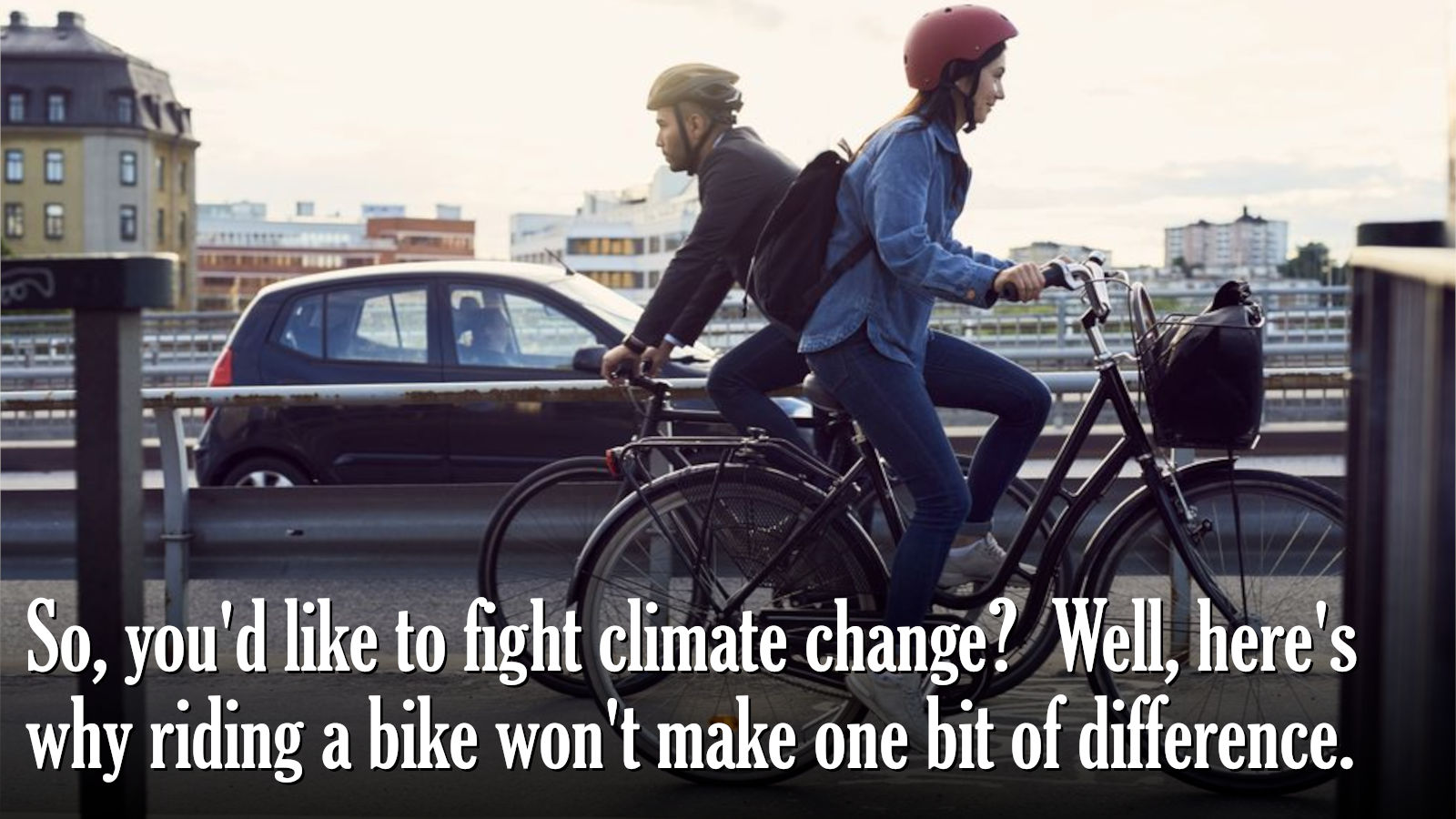Table of Contents
The Problem:- Cyclists desperately want more cycling infrastructure.
You might not have noticed, but for many cyclists riding a bike is no longer merely a pastime – it has become a religious crusade. This is especially true among cyclists who spend a lot of time on social media. Almost every cyclist on Facebook or Twitter tends to have a black and white outlook on life – you’re either with them, or against them.
This new form of “ultra conflict” is partly why we started Single File Please. Long before I joined the team, I used to race bikes as a younger man and it was a great sport. But that’s all it was – it was just a sport. It wasn’t a political movement. But that’s what cycling has become now. For many bike riders, cycling is now a political issue.
Like so many political causes on the internet, people who believe in a given “cause” tend to go looking for conflict. The syndrome even has a name – they call it recreational outrage. However, there’s a certain ‘bottom line’ with regards to cycling and that bottom line revolves around how much it costs to build new cycling infrastructure. Specifically….
When we reallocate limited road space in a crowded city to bicycles, the problem we introduce is this – in London for example, at best only one in 50 road users are cyclists, and that’s only during peak hour. The rest of the time that precious road space goes to waste because it’s woefully underused.
Put another way, in every major city on the planet (unless that city has a super small footprint) cycling isn’t a real world solution because most people invariably have to travel too far each day to get to work. So people reluctantly use motorised transport – unless they live in a city which has an amazing rail system. London used to have an amazing rail system, however, from the 1970s onwards the city expanded way beyond the 32 boroughs of Greater London, but the rail system didn’t. And that’s why 1.8 million people drive into Greater London each day for work.
Which brings us back to the issue of money. Every government around the globe understands it’s far cheaper to maintain an existing road network than it is to build a new multi-billion dollar rail system. After all, it’s easier to get people to pay for their own cars than it is to build fancy new trains at the government’s expense, is it not?
This is the part of the equation most cyclists don’t want to admit. Cycling is NOT a feasible transit solution for people who live in large cities unless a world class rail system also exists. If a city’s rail system falls short, so too does cycling.
The Fallacy:- Obesity rates are directly linked to car use.
So, how this article came about was a comment by a cycling advocate on Twitter named Inner Monologue. Like most cycling advocates, he tends to be a bit of an obnoxious know-it-all. He’s also rather fond of putting words into other people’s mouths and then arguing bitterly with them about stuff they didn’t say. But I digress.
Twitter limits the amount of words you can write per post, hence in the following tweet there’s an underlying premise which needs to be considered. When cycling advocates lobby for cycling, at all times their goal is to lobby for more cycling infrastructure. Everything they argue, everything they claim, revolves around their constant calls for more tax payer money to be spent on cycling infrastructure.
What the hell is active travel you ask? Like so many things in the modern era, it’s a fancy new name for something rather old. It’s the name cycling advocates have recently invented to describe to the simple act of walking or riding a push bike. For decades we didn’t need a fancy name for walking or riding a bike, but when you’re lobbying for MORE money from the public purse strings, it helps to use a fancy name it seems. Interestingly the term also includes e-bikes which somewhat defeats the purpose of the word “active” but that’s where we’ve arrived in 2021.
Something to note is the false premise which underpins a logical fallacy used by cycling advocates all around the world nowadays. Claim (A) says society needs more cycling infrastructure. Claim (B), supposedly the true claim, says obesity rates are 100% linked to the amount of car driving a given society partakes in. The logical fallacy argues Claim (B) supposedly makes Claim (A) true. In case you didn’t know, that’s how logical fallacies work.
Well sorry, but the data simply doesn’t support that. At best, it’s merely an opinion that “we need more cycling infrastructure”. Moreover, it’s an opinion shared by nobody, other than cycling advocates.
More importantly, Claim (B) – the part of the logical fallacy which supposedly validates claim (A) – is completely false. Have a look at what Inner Monologue is arguing… he’s saying high car usage and low “active travel” rates lead to high obesity rates. Sorry, but the data below shows that claim to be false.
Let’s take a look shall we, at a list of the world’s highest obesity rates, as defined by nationality.

The Facts:- Global obesity trends have absolutely nothing to do with car use.
Worldwide obesity has more than doubled since 1980 but it has nothing to do with automobiles – notwithstanding the many cyclists who would LIKE to think there’s a link. The facts are very simple. For every country which supposedly “proves the claim” – ie: a country which has both a high obesity rate AND a high rate of car ownership, there are at least thre countries which have a high obesity rate but they have a very low car ownership rate.
Researchers have two competing theories regarding obesity, both of which have nothing to do with cars.
- Dependency/World Systems Theory:- This theory suggests global obesity rates can be attributed to globalization processes at an international food corporation level. Specifically, the theory says global food corporations are contributing to obesity by flooding low-income markets with inexpensive high calorie foods, while also propagating an explosion in Western-style fast food outlets.
- Economic “Modernization” Theory:- This theory postulates climbing obesity rates (especially in low income countries) can be attributed to domestic factors such as rising income and higher women’s labor force participation as countries develop at an economic level.
Essentially there are two major competing stimulii which cause obesity in any given country. In one corner, we have an abundance of high calorie Westernised obesogenic food sources, commonly known as Big Food. In the other corner, we have millions and millions of people moving to cities each year around the globe, seeking employment.
- In developing countries, increased urbanization is the single most effective predictor of higher mean BMI. This supports the view that internal economic development processes are far more influential than global trade regimes (aka Big Food) as the primary cause of rising body sizes in these countries.
- In economically developed countries, the highest mean BMI levels are consistently found in lower socio-economic communities. This supports the view that ease of access to inexpensive but high-calorie obesogenic foods are the primary source of obesity in these nations.
The Reason Why Exercise-Focused Regimens Are Relatively Ineffective For Weight Loss
If you’re perplexed by the information in the previous section, don’t worry. There’s a simple explanation behind it, which we’ll break up into two parts.
Reason 1:- Unless you’re a professional athlete, calorie expenditure through exercise is actually pretty small in the grand scheme of things.
In order to see why exercise-focused weight loss programs tend to yield low efficacy, it helps to first understand the science behind our basic metabolic daily calorie expenditure.
We spend most of our calories every day just “staying alive”. This is known as our “resting metabolic rate.”
Let’s say you’re a 200 pound man who has 30% body fat. You’re going to expend at least 1,800 calories a day even if you do nothing but stay in bed. You’re also going to expend roughly 10% of your “resting metabolic rate” on something known as the Thermic Effect of Food (TEF): aka, the amount of calories it takes to digest and absorb dietary intake.
Add another 10% on top of that through a metabolic process known as NEAT Non Exercise Adaptive Thermogenesis. This is the amount of calories expended by getting out of bed and going about your daily routine and you’ve already burned 2100 calories.
As noted earlier, unless you’re a pro athlete doing huge amounts of training, adding exercise into your daily routine really is quite small in your overall calorie expenditure; most of the work is done before you put on your running shoes. Please note, I am NOT saying that you shouldn’t exercise, but rather, it’s important to realise where the majority of your calorie expenditure is happening.
Reason 2:- Most people are simply terrible at estimating “calories in” versus “calories out.”
If you’d like some evidence of this, take a look at another study recently provided by the Journal of Sports Medicine and Physical Fitness, in which researchers asked the subjects to exercise, estimate their calorie expenditure, and then took them to a buffet afterwards. Subjects were asked to consume the amount of food that they believed they burned in calories. (Sidenote: Where can I sign up for one of these tests? Sounds yummy!)
The subjects ended up eating 2-3 times the amount of calories that they burned.
The Reason Why cyclists are cynically exploiting the obesity argument.
So why do cycling advocates push the “cars make you obese” angle so hard ? Well, it’s all about getting more people into cycling, but they know that will never happen while people feel unsafe. Hence that means more cycling infrastructure. If cyclists were truly serious about fighting obesity, all day long they’d be pumping out literature about changing our diet for the better because, at best, inactivity represents maybe 10% of the causes for obesity while poor diet represents 90%.
In the history of humanity, not one person has EVER become obese by eating too few calories. It’s a scientific fact you cannot store excess body fat if you’re NOT eating surplus calories. I’d like to add – I’m not saying there are no salient issues such as mental health which can play a role, for example. But blaming obesity on cars is rubbish.
The reality is we never hear cycling advocates talk about diet – even though eating too many calories is the root cause of obesity. Why? Well, focusing on diet doesn’t pay any dividend regarding the cycling lobby’s agenda. Cycling infrastructure is what’s on their agenda, hence they focus exclusively on cycling as “the answer to obesity” because their goal is to influence budgetary decisions regarding new cycling infrastructure.
Of course, being cycling advocates, they’re in denial about that. Just like recreational outrage.
The Conclusion:- Don't waste your time arguing with cycling advocates.
Yes, it’s true echo chambers exist. And sometimes when we block people on social media we also remove the possibility we’ll hear a perspective we’ve never considered before. However, not all cycling advocates on social media have good intentions. Broadly speaking, cycling advocates on social media tend to fall into two groups. (1) They’re either trolls who get their kicks by relentlessly arguing with you (about anything) just to waste your time, or (2) they’re zealots trying to convert you to their fanatical new religion – aka “The Church Of Cycling Utopia”.
If you’re talking to someone who belongs to “The Church Of Cycling Utopia”, you’re not talking to a sane person. It’s really easy to identify them on social media by the way. If they have a photo of a bicycle in their profile photo? You’re talking to one. Like all religious zealots, their goal is to convert you. In this case, their belief system revolves around cycling being the solution to all of life’s ills. By definition that means they have poop for brains.
But then you get cycling advocates who live to be trolls – guys like Mike Watkins for example. Mike Watkins is one of London’s most high profile cycling advocates. This is a guy who spends at least 10 hours a day arguing with motorists on Twitter. Take a moment to consider what he’s admitting here in this tweet from 2018.
If you’re a motorist and you like using social media, sooner or later you’re going to come across one of these cycling trolls, and you’ll make the mistake of thinking you’re talking to someone who wants to debate cycling in good faith. But that’s not who you’ll be dealing with. You’ll be dealing with someone who gets a kick out of wasting your time and/or someone who gets a kick out of being a condescending sanctimonious prick.
So, our advice to a newbie on social media is this…. as soon as you realise you’re dealing with a cycling advocate, don’t respond. That’s what they want. Simply mute them, or block them. Or both.
Once you block them the problem is solved – well almost. With some cycling advocates, they’re so obsessed, even AFTER you block them they use web browsers in incognito mode so they can still follow you. Then they write posts for the benefit of their fellow cycling zealots so that they can talk about “their common enemy.” For example, this guy.
Here’s a sprinkling of the fake accounts we’ve banned from our Facebook Page in just the last year alone. There’s another 30 which have since been deactivated and deleted. To describe Michael Kater as “obsessed” is an understatement of galactic proportions. Truly an example of a guy with too much time on his hands.
Unfortunately, there are so many ‘crazy’ cycling advocates out there in cyberspace they’ve basically made it impossible for reasonable people to have a decent discussion about cycling issues. They love to hang out in private Facebook groups like The Revolution, and the moment anyone says anything remotely negative about cycling, they link each other to the comment so they can engage in a massive pile on. For all the ‘crazy’ cycling advocates out there, it’s a form of sport.
Share this article on your favourite social media platform.
